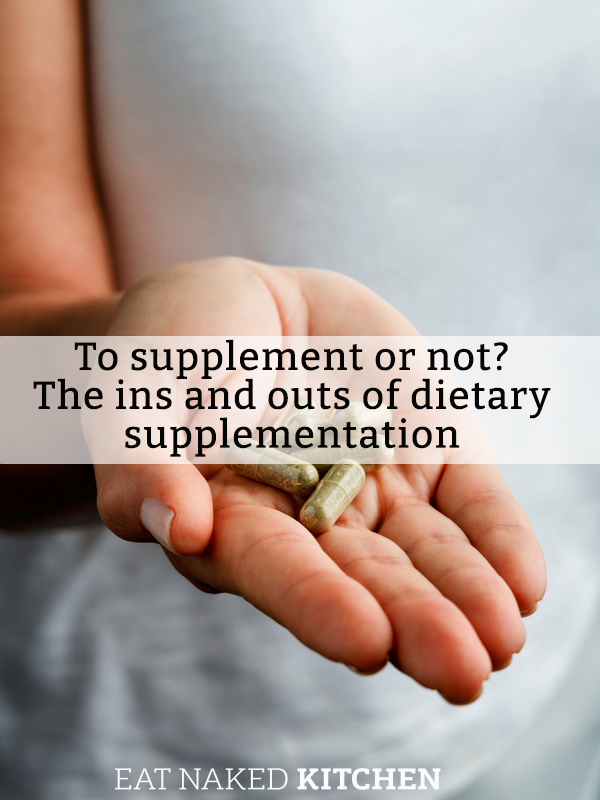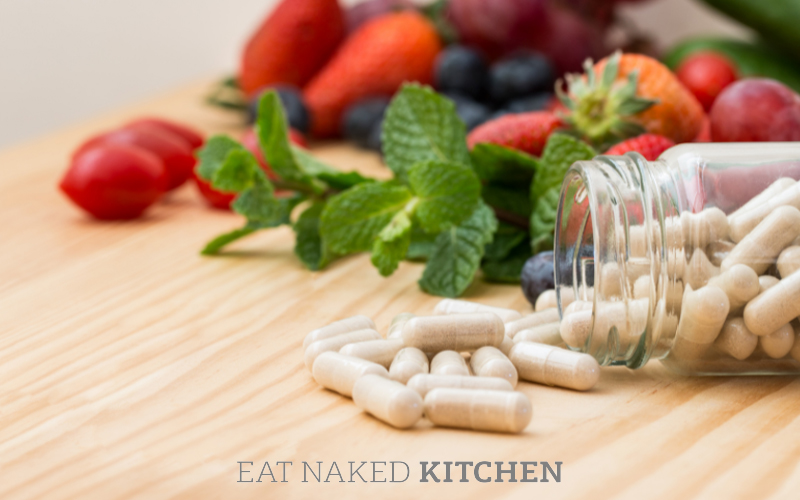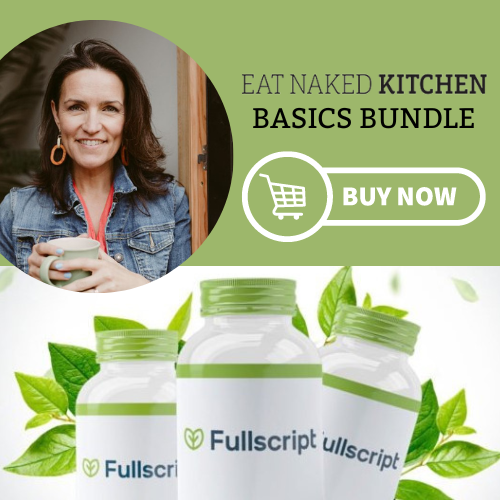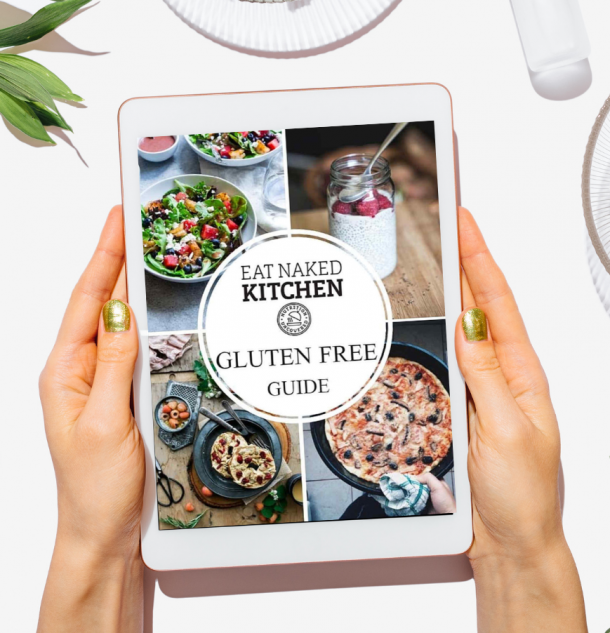Important Disclaimer: I am not a doctor and the information presented here is for your information only, not for the purposes of diagnosing, treating or curing any ailment. It is your responsibility to seek appropriate medical advice from a qualified health care practitioner. I strongly advise you to consult a qualified health professional before embarking on any significant changes to your diet, lifestyle, or supplement regime. Please read my full disclaimer here.
As a nutritional therapy practitioner, I get asked about supplements all the time. Do we really need to supplement? Can’t we get everything we need from our food? If we do need to supplement, what are the best supplements? And there are so many options… how can you know what’s right for you and your body?
These are great and important questions.
It will be no surprise to you that I am a BIG believer in getting as many of your nutrients a day through real, whole food, not through (as my husband calls them) pills, potions or lotions. The most bio-available nutrients are those found in nature’s best multivitamin: a diverse, nutrient-dense real food diet, homemade and from local organic sources.
That’s our holy grail. For some, it’s just that – a goal to strive for. If you’re not eating a diverse nutrient-dense diet, mostly home-prepped, from local organic sources, then there’s a good chance that you need a little boost from supplements. And sadly, even if you ARE eating this way, you probably still need a little extra support. It’s just part of modern life – we’re not outside enough to get sufficient vitamin D, we’re not working the earth with our hands to get soil-based probiotics, and it’s hard to get the full complement of fatty acids and vitamins/minerals we need to truly feel our best. Add soil depletion, lifestyles chock full of chronic stress, and massive toxic exposure to the list, and even if you’re eating the most pristine diet, there’s a good chance your body could still use a little extra love.
So the short answer is yes: we all need to supplement. How much and to what extent depends on your lifestyle, your diet and what’s currently going on in your body.
Before we dive into the specifics, let me take a step back and share how I think about supplements. In my mind, there are two broad categories:
1) Dietary supplements – these are supplements in the way most people think of them. Can’t get enough vitamin D through sunshine or diet? Then you need to supplement. Need a vitamin C boost through cold and flu season? Time to reach for a supplement. [Get the Ultimate Immune Boosting Gummy ebook here]
Dietary supplements provide nutrients that are missing from your diet.
2) Therapeutic supplements – this category of supplements is a little more complex. Perhaps you’re getting enough of a given nutrient in your diet, but your body isn’t able to absorb it or use it properly. This suggests some kind of functional imbalance and this is where therapeutic supplements come in. Let me explain by example:
Let’s say you have those little red bumps on the backs of your upper arms. A lot of people have them, so you probably know what I’m talking about even if you haven’t experienced it yourself. That’s a classic sign of vitamin A deficiency. But here’s the catch: are you deficient in vitamin A, or are you not digesting and absorbing your fatty acids – important co-factors for vitamin A assimilation – properly? Vitamin A is a fat-soluble vitamin and so even if you’re getting enough of it in your diet, if you’re not digesting fats properly, you won’t be able to properly access and use the vitamin A that you are getting.
What’s the solution? Well, in this example, if you were my client and if I’d seen on your food journal that you’re likely getting enough vitamin A, I’d probably try a supplement that supported fat digestion (a functional issue) before just giving you more vitamin A (a dietary issue). 9 times out of 10, I’ve seen those little bumps go away when we get the client digesting fat properly.
This is a great example of a therapeutic supplement. We aren’t supplementing a specific nutrient that is missing from your diet, we’re supporting a function in your body that might need a little extra love (your fat digestion in this example) so that you can access the nutrients from the food you’re already eating. Therapeutic supplementation tends to be shorter term and is designed to bring your body back into balance so that it can do what it is designed to do.
Therapeutic supplements support a function in your body that might need some extra love so that you can access and best use nutrients from the food you’re already eating.
As a practitioner, this is where I like to start with clients. The catch is that you really need to work with a practitioner who specializes in functional nutrition in order to determine what support you need – it’s a very individual thing and is based on many factors.
If you’re not ready to work with a practitioner, but want some good basic supports, here’s a list of products I use frequently and some basic indicators for whether you could benefit from them.
But wait… Not all supplements are created equal.
I strongly encourage you to do your homework here. If you’re going to invest in supplements, for goodness sake don’t skimp and get the cheapest you can find. Here’s a sobering fact: supplement companies are not regulated with the same kind of rigor by the FDA as pharmaceuticals. This means there’s no quality control testing from pill to pill, or bottle to bottle. It also means you’re often getting loads of fillers and binders, sometimes accounting for as much as 40% of the supplement itself!
Most supplements I recommend to clients are professional lines that are pharmaceutical grade and regulated by the FDA with the same rigor as their pharmaceuticals. For example, this means that a maximum of 2% of the content can be fillers or binding agents. It also means that there’s strict quality control testing from bottle to bottle, and pill to pill. If the supplements are not from professional lines, then the ones I recommend are those I have researched and have the highest standards of quality. I only ever recommend product lines in which I have the utmost confidence.
ANOTHER CRITICALLY IMPORTANT NOTE:
Supplements are powerful and can interact with medications you’re currently taking. If you are taking any prescription medication, it’s a good idea to take any new supplements to your pharmacist and have them double-check to ensure you’re not inadvertently taking something that is contra-indicated.

Now that we’ve gotten the disclaimers and caveats in place, here’s my list:
Fish oil
You’ve probably seen all sorts of food labels raving about their product’s Omega 3 content. Omega 3s are very important essential fatty acids (“essential” meaning that the body cannot make them from other fatty acids, and thus they must be obtained through the diet directly). Both Omega 3s and Omega 6s are considered essential to our diet. There’s a lot of focus on Omega 3s because our diet is grossly imbalanced in favor of the 6s. The optimal ratio of Omega 3s to Omega 6s is anywhere from 1:1 to 1:4; the modern diet is closer to 1:20 or even 1:40!! What makes matters worse is that the Omega 6s we are eating are usually highly over-processed and thus highly inflammatory. There are lots of things to do to address this issue (eliminating processed vegetable and seed oils from your diet is an excellent starting point) but from a supplement perspective, a basic and easy step is to add fish oil to your diet.
Now as with whole fish, quality is paramount when it comes to supplementing with fish oil that you’re getting high quality. I like Biomega-1000 because it is a potent source of omega-3 essential fatty acids (EFAs) that are sourced from a strategically-placed facility in the far South Pacific Ocean off the coast of Chile, guaranteeing the freshest raw material available, full traceability of the product and unparalleled purity. Biomega-1000 capsules deliver an impressive 1,000 mg of omega-3 oils, making it the ideal choice for therapeutic dosing of the essential fatty acids, EPA and DHA (the vitally important essential fatty acids found in fish.
Could you benefit from it? This supplement is great for people struggling with inflammation, immune issues, or who don’t eat a good source of wild fish 2-4 times a week. It’s also excellent for pre-conception and as a prenatal and is one of my “musts” for kids since it’s so critical for immune and brain development
Probiotics
Unless you’re eating a lot of fermented foods (as in something fermented at every meal with a wide variety of fermented foods and beverages) then supplementing with a quality probiotic is an excellent idea. Even when you ARE eating a lot of fermented foods, I like to supplement occasionally (every 3-4 months) with a month of probiotics to boost my body’s population of the “gut good guys”.
My favorite one by far is a soil-based probiotic which means it has a completely different family of probiotics in it than you’ll find in any fermented food – this means it complements fermented food really well and provides strains of probiotics many of us are deficient in.
[Get the Ultimate Immune Boosting Gummy ebook here]
Could you benefit from it? If you have ever taken antibiotics and didn’t supplement with a soil-based probiotic afterward, then you could benefit from this supplement even if you have supplemented with other probiotics. I take it twice daily (one first thing in the morning, one before bed) for 3 months, and then do a 1 month round twice a year for maintenance.
Desiccated liver
Ewwwww, liver? Yes, liver. And it’s for this very “yuck factor” that I recommend it. You see, organs are actually some of the most nutrient-dense parts of the animals we eat and were a key staple of traditional diets. Growing up we had liver for dinner at least once every other week. It wasn’t my favorite dish, but I ate it, and now, as a nutritionist, can appreciate my mothers’ intuition around this one. Liver is high in B-vitamins, especially B12, the important fat soluble vitamins A, D, E and K, folic acid, and important minerals. And don’t just take it from me – here’s an article from leading health expert Chris Kresser LAc, who calls liver nature’s most perfect super food. Check out the cool table comparing the nutrient profile of beef liver to some of the common vegetable superfoods. Liver is the clear winner.
Now, I’d far prefer you to eat the liver itself (and other organ meat! let’s not discriminate), but if that’s just not going to happen, then a desiccated liver supplement is your next best bet.
Now, if you’re starting to tune out and feel like preparing beef liver is outside your comfort zone, we’ve got you covered. If you haven’t heard, our very own Chef James Barry has created a new food product that is one of the easiest and yummiest ways to get the health benefits of organ meats without having to wrap your mind or your cooking skills around preparing it. PLUCK, is an organ-based seasoning that gives you all the benefits of organ meat without having to learn new culinary skills. Pluck contains beef liver, kidney, heart, spleen and pancreas…many organs that you’d be hard-pressed to find available in your local store or even online.
How does Pluck taste? Well, it doesn’t taste like organs. It has umami or savory taste to it; slightly smoky (from the smoked paprika) and slightly salty. What I love is that I can put it on anything from fish and vegetables, to movie night popcorn and m family gets the nutrients and vitamins from organ meats without having to talk my kids into eating liver. Plus, it actually makes food taste better. I notice when I make a meal that is good, all I need to do is add some Pluck and the meal becomes great.
Could you benefit from it? Are you eating organ meat from healthy pastured animals twice a week on a regular basis? If yes, then you can skip this one. If not, then this is the next best thing.
Greens
Do you eat your greens? I love greens, but even loving them I don’t always get enough of them. When I travel, I always take extra greens to offset the dietary damage incurred by not being in full control of my food.
One of my favorite greens supplementation is called Daily Greens Plus. This unique greens powder formula combines the highest-quality sources of green nutrition with adaptogens that support a healthy stress response and adrenal function, as well as an antioxidant blend that boosts the body’s defenses against oxidative damage and a mushroom blend that promotes optimal immune function.
Could you benefit from it? If you don’t get enough greens (I strive for 3 full cups a day of dark leafy greens raw or cooked) if you’re traveling a lot, or if you could use a little additional detoxification support (who couldn’t?) then drinking some daily greens could be your new best friend.
Gelatin
I’ve written a little bit about the health benefits of gelatin (here and here), and I think of this as one of the unsung superfood heroes. When we think of gelatin, most people think of the gnarly, over-sugared jello they used to eat as kids. While I’d never recommend that over-processed dessert, it actually had healthy origins. Traditionally it was made from the gelatin from cartilage of healthy, pastured animals. In this form, it’s an amazing source of collagen and as such, is terrific for any connective tissue in your body. Think: hair, skin, nails, joints. It’s also a great source of amino acids that are in short supply in our diet and helps to heal and soothe the digestive tract. I’m a big fan. Here’s a great book on the topic, with fun recipes and creative ways to include it in your diet.
Could you benefit from it? Are you drinking 1-2 cups of gelatinous homemade bone broth a day? If not, then gelatin could be a great addition to your diet. It’s such an easy thing to add in – just add a heaping spoonful of Vital Proteins Collagen to your drinks – hot or cold – a couple of times a day. Strive for 2 Tbsps a day and watch the results with your hair, skin, and nails. You’re welcome. (Note: the Vital Proteins beef gelatin is also great, but is used for making gummies and other gelatinous treats. You can certainly use it, but it doesn’t dissolve as easily in water. For great gummy recipes with supplement formulas for both kids and adults, get the Ultimate Immune Boosting Gummy ebook
Magnesium
As you’ll see from this list, I’m not a big fan of supplementing with single nutrient supplements. I typically prefer whole foods supplements that include not only the nutrients I’m looking for but other co-factors and nutrients (some of which we likely don’t even know exist yet). The big exception to this list is magnesium. Why? For several reasons: it’s the first mineral to be depleted by stress, and in our stress-ruled world, pretty much all of us need it. It’s also depleted by sugar consumption, which is another chronic issue. There are many more reasons for supplementing with magnesium: it’s helpful for sleep, alleviating headaches, muscle cramps, anxiety, blood pressure, bone health… you get the idea.
Magnesium can also inspire loose bowels – I always bring magnesium when traveling, for example, which tends to constipate me (change in diet, dehydration from long plane rides, etc) and over-stimulate me.
Could you benefit from it? If you struggle with sleep, stress, anxiety, or find it hard to relax mentally (or physically – like muscle cramps). If you’ve got headaches, especially migraines, magnesium can make a huge difference. If you struggle with occasional constipation due to travel or other life interference, then an oral magnesium supplement can help keep things moving (but please don’t use it long-term or for chronic constipation – that’s actually a serious issue that needs to be addressed).
If you are interested in trying these supplements, I put together a bundle of my favorites. Click on the image below to purchase your Eat Naked Kitchen Basics Bundle today.
*if you are not a Fullscript member, you will need to create your FREE account first.
What are your go-to supplements? Do you have any that you’ve found to be particularly helpful? Please share in the comments below.






Thank you for the thorough description of supplements. Honestly, I’m not great about taking supplements. But did learn from my midwife that food-based vitamins would be more digestible and accessible. Didn’t know there was such a thing before then. I could definitely keep them down better than the prescription pre-natals.
This is really brilliant — somehow the idea of supplementing for vitamin absorption never occurred to me. What would you recommend to help with fat digestion? I’ve got the red bumps!
Zach – it’s a little more complicated than what I can just recommend here. I recommend working with a practitioner to dive a little deeper into the issue. (I do this work, and there are others who are also great with this kind of approach – here’s a practitioner database you can use: http://nutritionaltherapy.com/ntp-referral-list/)